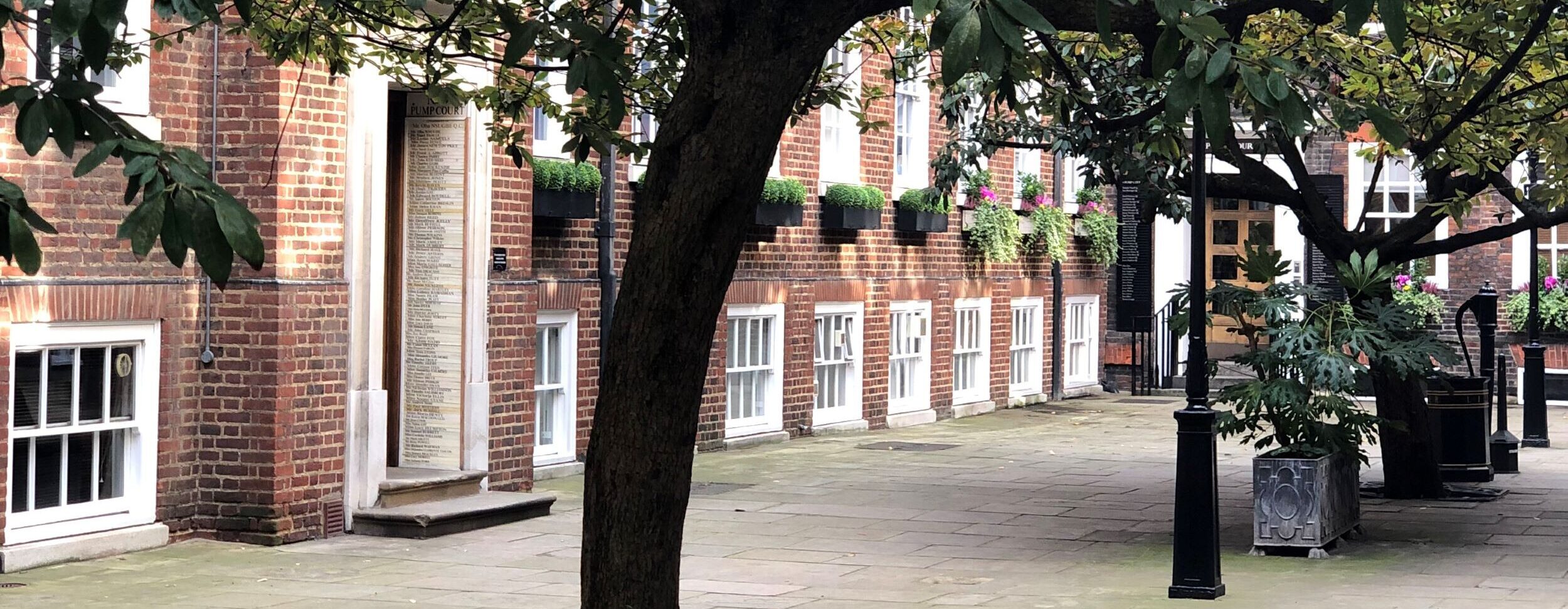New Dean’s Lectures for ICCA Bar Course students
A ‘sea change’ in the approach to questioning vulnerable people and children & Trauma-informed practice at the Bar
ICCA Bar students have profited from two extra-curricular lectures this term delivered by the Dean of the ICCA. The first, in October, was in collaboration with HH Peter Rook KC, Vice-Chair of the Parole Board, who, during his judicial career as an Old Bailey judge, pioneered an adapted approach for the cross-examination of children and vulnerable witnesses in the criminal justice system.
Their lecture drew parallels between HH Rook’s mea culpa with regard to the treatment of the vulnerable in court and the flaws of previous generations. Students were walked through the last three decades of an increasing awareness of the unfairness in adapting the process to enable the vulnerable to participate fully in their own experiences of the criminal justice system.
Students heard that witnesses are no longer bludgeoned by aggressive and oppressive questioning, but, how we expect children and vulnerable adults to be treated today was almost inconceivable half a generation ago. Whilst we had the benefit of drip-fed umbrella legislation in 1999 to provide statutory measures and automatic eligibility to such adaptations for children and sex case complainants, advocacy skills did not match up.
The landscape really started to shift with the instrumental work of Andrew Norfolk, award-winning Times journalist who broke the stories of a child protection scandal in the north of England [link to The Times requires subscription] in 2012. His work led to two government-ordered inquiries, a parliamentary inquiry and a national action plan on child sexual exploitation. He pursued his work as these children went on to give evidence against their perpetrators where they suffered renewed trauma at the hands of advocates.
By 2014, the Court of Appeal became the unexpected initiator and driver of significant change. Over the last 8 years, the courts have reinforced the principles that must be applied to obtain accurate information from a witness in a way which does not exploit their developmental limitations. HH Rook rounded up by telling students that, “it repositions the witness as a valued participant in the dialogue rather than a puppet in the lawyer’s presentation” – Dr. Emily Henderson.
Following on from the first lecture, students learned about trauma from eminent psychologist, Wendy Showell-Nicholas, who works closely with barristers suffering burnout and vicarious trauma as a direct result of workload and harrowing subject matter. Students were told that whilst in some ways having a trauma-informed practice was still a relatively new concept, it was nevertheless a crucial ethical competency for them as advocates. In the pursuit of excellence, the lecture focussed on helping students have an awareness of trauma in their clients and themselves. People spending what is often a short but stressful time in any part of the justice system, should feel empowered to make decisions and they are entitled to understand what an advocate can and cannot do for them.
Students heard about the types of behaviour that might be exhibited by a traumatised client and were encouraged to seek a ‘window of tolerance’, which shrinks for anyone impacted by trauma. Strategies for identifying trauma and adopting principles and skills leading to a trauma-informed practice were shared as well as encouraging these pioneer advocates of the future to accept that there are still systemic issues still to be tackled; that they should highlight those things and call them out.
Finally, students were urged to embrace their own strategies to minimise the risk to themselves of vicarious trauma or secondary traumatic stress.
Students in attendance reported the following:
“The lecture series has supplemented our advocacy training, and goes above and beyond the syllabus. The lectures have focussed on vulnerable witnesses, and the progress which the justice system has made to handle vulnerability. The lectures have also highlighted how we, as advocates, can handle traumatic topics which often arise in practice.
In addition to our in-course training on vulnerable witnesses, HH Peter Rook KC highlighted how these measures have been treated and developed through case law. Wendy Showell-Nichols has also joined us to give an insight into the way we can develop our practice as trauma-informed advocates.
ICCA’s role in shaping the legal landscape in relation to vulnerable witnesses has been so helpful to students, and we’ve benefitted hugely from the Dean’s expertise. The lecture series is invaluable, irrespective of practice area.”


